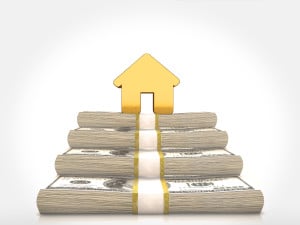A new report shows just how much more valuable Greater Boston real estate has grown in the last decade.
A new analysis by Zillow has found that the total value of every home in the Boston metro grew by $294 billion, or 53.3 percent, from 2010 to 2019. The report pegged the total value of the area’s residential real estate at $845 billion, or 2 percent of the national market. That compares to the three most valuable metro areas in the country: New York ($3.2 trillion) Los Angeles ($2.5 trillion) and San Francisco ($1.6 trillion).
Much of Boston’s growth has already happened, Zillow found, despite a median statewide single family sale price that grew from $365,000 in 2017 to $400,000 in 2019 and a median condominium sale price that grew from $341,000 to $380,000 over the same period, according to The Warren Group, publisher of Banker & Tradesman. The total value of Greater Boston residential real estate grew only $10 billion, or 1.2 percent, in 2019.
The report comes as officials in Boston City Hall and on Beacon Hill are looking to pass sales taxes on real estate transfers up to 2 percent of the sale’s value.
The national housing market added $11.3 trillion in value – a more than 50 percent increase – since 2010, when the market was battling to regain its footing in the wake of one of the largest housing downturns on record, Zillow found. About 14 percent of that gain was from new stock entering the market, with the remainder from increased values of the existing stock, underlining just how much home values rose during last decade’s recovery and then explosion.
At the metro level, Washington, D.C. ($38 billion), Phoenix ($30 billion) and Seattle ($30 billion) have added the most value since the end of 2018. Two large metros lost value over this period – San Jose, down $49 billion, and New York, down $46 billion.
“In 2010, Americans were grappling with falling home values, unsold subdivisions, and sky-high foreclosure rates, while policymakers were working to stimulate demand,” Zillow economist Jeff Tucker said in a statement. “A decade later, we’re facing a very different set of challenges, as a persistent shortage of new homes and starter homes has kept home prices rising out of reach for many would-be first-time home buyers. More and more of the nation’s wealth is now tied up in our homes, as workers in some of the world’s most economically productive cities, such as San Francisco, San Jose and Seattle, have raced to get a foothold in homeownership there, driving up prices with their fierce competition. Most of this growth has come from rising prices for the same homes, not from actually building more homes, a troubling trend when it comes to affordability.”




 |
| 


